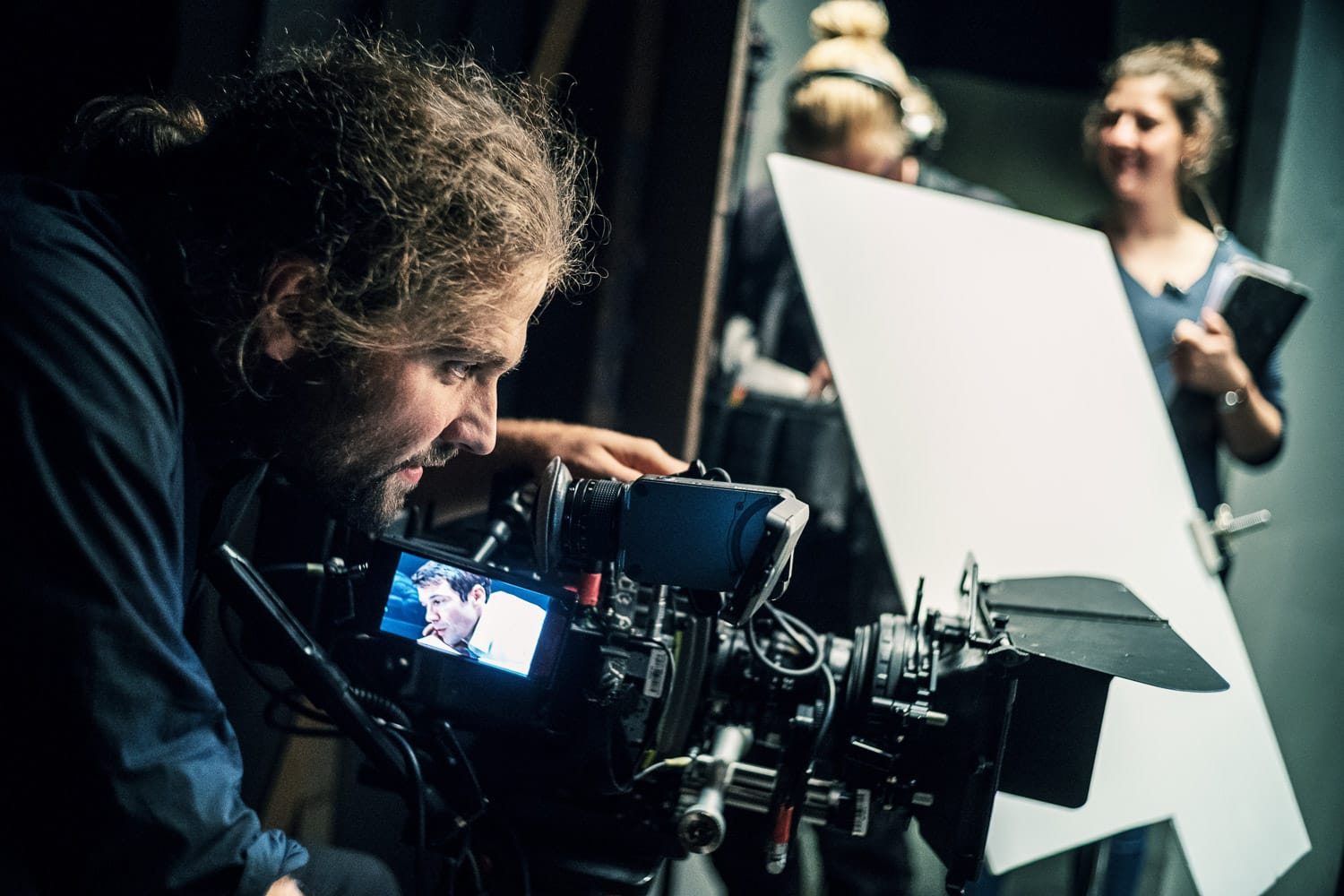Cinematography
In a dark room — frame, format, focal length, perspective, position, movement, tempo, rhythm, colour, contrast, and light; emotion, atmosphere, characters, and story — Cinematography.

Together, in their first academic year at the DFFB, all students learn the theoretical and practical basics of filmmaking. The focus is on communication and collaboration, and students discover how to offer one another productive feedback and criticism on their projects. Films are made together and for one another. Side by side, students learn new processes, develop their visions, try different approaches, take risks, and dare to fail.
In the second academic year, cinematography students receive a thorough education in the technical and creative aspects of their craft. The DFFB believes that it is essential for students of this specialisation to completely master fundamental cinematography techniques in order to fully express their artistic visions. For example, students learn techniques pertaining to camera movements and lighting set-ups, and develop an understanding of space when filming.
Learning takes place with the newest digital equipment, but special emphasis is placed on working with classical analogue 16 mm and 35 mm film technology.
Cinematography students must also demonstrate respect for story structure, hard work, and collaboration. The goal is for students to develop an approach to their craft that is both clear and individual, and that abides to the fundamental elements of filmmaking.
Cinematic worlds and atmospheres are developed, discussed, and brought to life. The difficult but exciting and creative process of working with light begins and is continuously developed. Students learn how to read scripts and break them down into a cinematic language that serves the story. They also learn how to work as team players and how to collaborate and communicate with actors and directors. They develop confidence in their own skills on set, as well as in the skills of others.
In the main studies programme, there are a variety of practical and theoretical classes (see syllabus), which are taught by renowned cinematographers and directors. All of these classes offer students the opportunity to expand their skills and further develop their creative visions.
Michael Bertl
